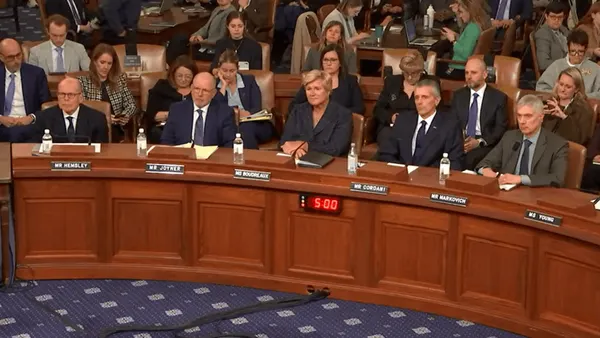Dive Brief:
- A federal judge has vacated a Biden-era rule that would have curbed Medicare Advantage plans’ payouts to agents and brokers.
- On Monday, Judge Reed O’Connor of the Texas Northern District Court ruled that the CMS overstepped its authority in trying to cap payments to MA sales organizations beyond direct compensation, and in prohibiting contracts that incentivize brokers to steer seniors to specific plans.
- “CMS may only regulate how compensation is used, not engage in ratemaking,” O’Connor wrote in his decision. It’s a loss for smaller plans, which argue that the status quo benefits larger and wealthier insurers, and a setback for efforts to curb predatory marketing in the privatized Medicare program.
Dive Insight:
MA plans reimburse independent agents and brokers for helping seniors shop between and enroll in their plans. Regulators cap the compensation. But, payments to third-party firms like field marketing organizations that provide administrative services to said agents and brokers went uncapped — until last April, when the CMS finalized a rule that would have stopped payers from paying additional fees that aren’t subject to the compensation cap.
The rule also forbid plans from entering into contracts that include incentives for brokers to nudge people to their plans, such as volume-based bonuses for enrollment.
The Biden administration said the rule was meant to ensure that seniors ended up in the plan that’s best for them, instead of whichever plan reimbursed agents the most money for enrolling members.
Broker and marketing organizations quickly sued to block the rule, arguing it threatened their business model and exceeded the CMS’ regulatory authority.
O’Connor stayed the rule after joining the suits in July. And now, the judge — who has a track record of rolling back health policy actions from liberal administrations — has vacated it entirely.
The CMS doesn’t have statutory authority to regulate contracts between health plans and their marketing partners beyond direct compensation, O’Connor wrote in his decision. As a result, regulators can’t limit payouts for administrative services or decide broader contract terms, the judge said.
O’Connor did allow a provision in the rule to stand that forbids marketing organizations from sharing beneficiary information with each other without consent.
Still, the ruling is a hitch for efforts to put more guardrails around MA marketing.
It’s common for Medicare enrollees to rely on brokers when selecting coverage. Roughly a third of MA beneficiaries use the intermediaries to help them shop between plans, according to the Commonwealth Fund.
Though Medicare sets a fixed amount for broker compensation, add-on payments from health plans for services like administration sharply inflate take-home payments, according to the Alliance of Community Health Plans, a nonprofit plan association that advocates for broker oversight.
That financial incentive, coupled with the fact that brokers aren’t required to inform consumers about all plans available in their area, has resulted in beneficiaries being steered to plans that may not best meet their needs, according to patient advocates and some legislators.
Beneficiary complaints of inappropriate MA marketing more than doubled from 2020 to 2021, according to an investigation by Senate Finance Committee Democrats. The report found beneficiaries were sometimes enrolled in plans without their consent, or had their coverage switched to a plan that didn’t cover their doctors.
And, when the CMS first proposed the rule in November, analysts said removing perverse financial incentives could also help smaller health plans compete for members against larger health plans with more marketing resources.














